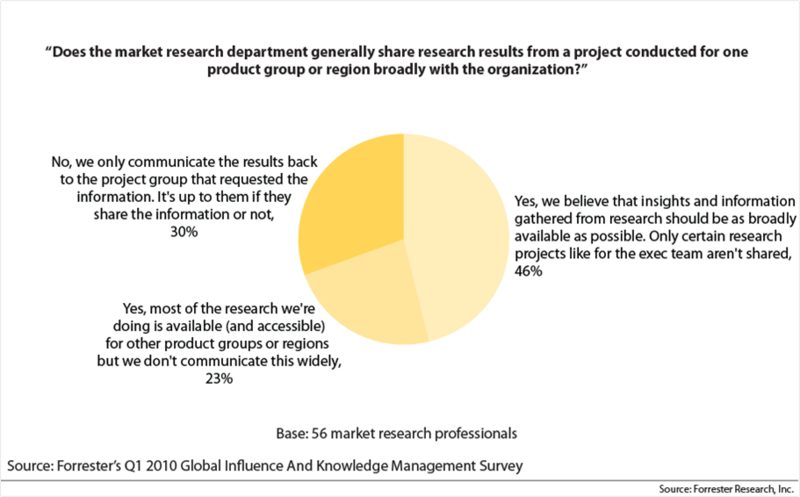Market Researchers Need To Embrace Knowledge Management
In the past couple of months I've been working on a document called 'Information Management For Market Researchers', released earlier this month to our dedicated Forrester Market Research Leadership Board Members. Although I can't share all lessons learned with you yet, there are a couple of insights I'd like to bring to your attention.
The most important outcome from my interviews with market researchers and knowledge managers is that a culture of sharing creates better products and helps companies be more successful innovators. Simply said: to innovate, knowledge from various departments needs to come together, irrespective of role or rank.
Because Market Researchers both generate and manage many data sources, they are in theory in a good position to introduce knowledge management to the organization. They can do this at multiple levels, from restructuring their own market research department, including the way they share research with the organization, to introducing a company wide knowledge management platform. The role market research can play in practice depends on the culture of the organization, the influence the market research department has, and the maturity of the research department.
But not all market researchers are yet convinced that sharing is good. We asked market researchers in our Q1 2010 Global Influence and Knowledge Management Market Research Panel Survey “Does the market research department generally share research results from a project conducted for one product group or region broadly with the organization?"
Although the majority of researchers state that the conducted research is available to a broader audience, 23% don’t communicate this widely. And about a third only communicates research results back to the project group that requested the information.
In my interviews I found that true innovators can’t work in silos — the synergy of information and knowledge lets people come up with new ideas. Research results should be as broadly available as possible, to serve as a foundation for new insights.Building a knowledge management platform makes it easier for people to share their ideas and build on the insights gathered outside of their own area of expertise.
I'll be writing about this more in the future, like for example on how you can identify the barriers to success, or sharing some best practices for implementing information management to the research organization.
For now, I'd love to hear your opinion: do you agree with me that research should be as broadly available as possible? And should market researchers embrace knowledge management? If so, in which way? If not, why not?
